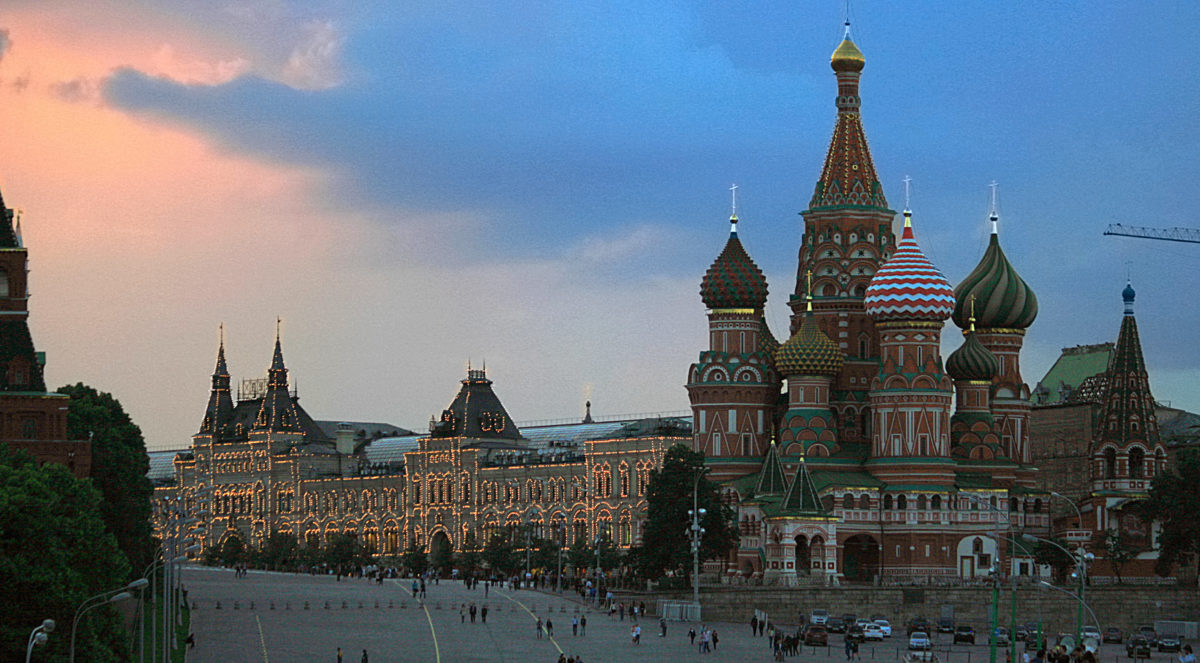Despite its huge territory, wide availability of land and strong potential for solar and wind power, gas and oil-rich Russia has so far seen limited development of clean energy. That may be a natural consequence of the ‘oil curse’ – the paradox facing countries with plenty of fossil fuel resources and an unstable economy or democracy – or simply the result of ignoring the potential of renewables. “I think it is a combination of the two, and one contributes to the other,” says Overland. “Russia is definitely affected by its fossil fuels resource wealth in many ways, including a less immediate need to develop renewable energy. Consequently, it ignores the long-term potential for development of renewable sources of energy both globally and within Russia.”
But Russia, according to the researcher, also suffers from another “curse”: its strong position on nuclear power. As a consequence of Russia’s leading role in fossil fuels and nuclear power there are few places in the world with so few incentives to develop renewables.
That means the most important geopolitical consequences of the renewable energy transition will depend not on whether Russia adopts renewables but on whether the rest of the world does so. “If so, Russia may lose the export markets for its oil and gas and its main source of revenue,” Overland says.
When asked if Russia, as a gas superpower, could use its gas infrastructure for power-to-X technology, Overland highlights how the country’s gas infrastructure is huge, both domestically and for export. “If this can be used to export hydrogen it is a very interesting option for Russia,” he says. Russia, though, also has huge amounts of space where solar panels could produce almost unlimited amounts of energy, as long as the price of the panels remains low. “While many people think of Russia as a cold, dark place, they don’t realize that most of Russia has a highly Continental climate, with lots of sunshine – more than most of Western Europe, for example,” adds Overland.
The energy expert also stresses lower temperatures can be a partial advantage for solar panels, as it helps them work more efficiently. In theory, Russia could use solar power to produce large amounts of hydrogen and export it through its gas pipelines. “However, there are technical issues related to the effect of hydrogen on steel pipes and end users burning it in different appliances,” Overland says. “These issues are being studied internationally and the prospects for Russian power-to-X exports depend on how this research develops.”

Image: Norsk Utenrikspolitisk Institutt (NUPI)
But solar may also be an option to improve Russia’s domestic power supply, especially in non-interconnected regions of its far east. Russia is the world’s most extensive country and Vladivostok, on its Pacific coast, has an eight-hour time difference from Moscow – the peninsula of Kamchatka has yet another two hours’ difference. The Russian far east is also much nearer some of the world’s most vigorous centers of financial and military power, and they have a gravitational pull – especially Beijing. “It can potentially be a challenge to keep such a vast country together, however, the Kremlin is doing so very effectively and I don’t think energy independence brought on by renewables is likely to have any effect on this equation – both because large-scale development of renewables is not a likely prospect for the Russian far east for a long time to come – even though it can play an important role in isolated settlements – and because even if it were, the integrity of the Russian federation depends more on other things, such as identity, language and media,” Overland says.
Size will matter
What makes Russia so different from other superpowers is its geographical dimensions. “As I argued in the article The Siberian Curse: A Blessing in Disguise for Renewable Energy? Russia’s size is both a challenge and an advantage,” the professor says. He says the vast extent of the country means many locations are very far away from each other and there may not be infrastructure linking them. In that situation lies an advantage too: due to the great distances in many cases it may make more sense to develop local, off-grid, mini-grid solutions based on renewables, as the high cost of connecting to central grids makes it easier for renewables to compete on cost.
Too late for panel manufacturing?
Asked whether Russia may have an interest in building a solar module manufacturing industry, Overland says, in principle Russians may like to do that, especially when they realize how big the global solar market is going to be. “But as the book Russian Renewable Energy argues, Russia failed to seize the opportunity that it had to become one of the leaders of the solar power sector based on the expertise on photovoltaics inherited from the Soviet Union,” he says. “Now it is difficult to catch up with the Chinese and others.”
Eastern European neighbors and Caucasus seeking energy independence
Meanwhile, Ukraine is developing renewables in an effort to obtain energy independence from Russia. According to Overland, renewables could present a great opportunity for Ukrainian energy independence, with conditions in much of Ukraine being good for solar. “However, Ukraine’s problem is lack of internal discipline and direction, and this problem may be so great that it fails to seize the opportunity,” he says. “The Baltic countries may be more effective but are still not leading on this in a European context – which is a bit strange.”
Like the Baltics and Ukraine, Caucasus nations and the members of the Eurasian Economic Union have not been quick to seize the opportunity to develop renewables and there are few signs of that changing. “The central Asian countries have an incredible potential for solar power, with their ultra-continental climates and large amounts of empty, flat space in Kazakhstan, Turkmenistan and Uzbekistan, but they have been very slow to develop solar power,” Overland says. “Again, the problem is one of an abundance of competing energy forms. Those three countries have fossil fuels and Kyrgyzstan and Tajikistan have abundant hydropower resources. Also, their mindsets have not moved on to see the opportunities for renewables development yet.”
Asked if Russia would ever consider joining Europe’s super-grid, Overland did not exclude the possibility. “I actually think the Russians would be keen to increase their electricity connectivity with Europe … driven by a desire to make money from exports and to cooperate with Western countries – which have been giving Russia the cold shoulder since [it annexed the] Crimea”, he says. “In turn, connecting with the European grid could raise interest in electricity production in Russia. However, if Russia can export decarbonized electricity it may be more likely to do so in the form of nuclear power than renewables, if other Europeans are willing to buy Russian nuclear power.”
Unthinkable scenarios
Could Russia one day decide to fight climate change and think about switching to an energy system based 100% on renewable energy? “That is definitely a wildcard, that is to say, not a very likely scenario,” Overland says. He feels it could happen if a big, powerful climate club were formed by other nations and they were able to implement serious sanctions against non-member countries. “There are a lot of ‘ifs’ in that scenario, but on the other hand I don’t see any other way to really mitigate climate change, so it cannot be excluded that this is how things will develop over the next 20 years,” Overland adds.
In terms of fighting climate change, says the energy researcher, Russia may have achieved more than it is given credit for. “Actually, Russia’s accession to the Kyoto Protocol was what made it possible for the protocol to become effective,” he says. “And Russia’s greatly reduced emissions compensated for the rise in emissions in other signatory countries.” However, Russia joined the protocol for pragmatic reasons and the reduced emissions were accidental, as they were due to the industrial collapse prompted by the dissolution of the USSR, he explains. Few people in Russia seem to care much about climate change – even among those preoccupied with local environmental issues.
However, that could change if pressure were applied internationally. “Such a development could also be helped along if the climate has some very bad consequences for Russia in the near future, for example in terms of droughts. But it is not a very likely scenario during the coming years,” Overland concludes.
This content is protected by copyright and may not be reused. If you want to cooperate with us and would like to reuse some of our content, please contact: editors@pv-magazine.com.




2 comments
By submitting this form you agree to pv magazine using your data for the purposes of publishing your comment.
Your personal data will only be disclosed or otherwise transmitted to third parties for the purposes of spam filtering or if this is necessary for technical maintenance of the website. Any other transfer to third parties will not take place unless this is justified on the basis of applicable data protection regulations or if pv magazine is legally obliged to do so.
You may revoke this consent at any time with effect for the future, in which case your personal data will be deleted immediately. Otherwise, your data will be deleted if pv magazine has processed your request or the purpose of data storage is fulfilled.
Further information on data privacy can be found in our Data Protection Policy.